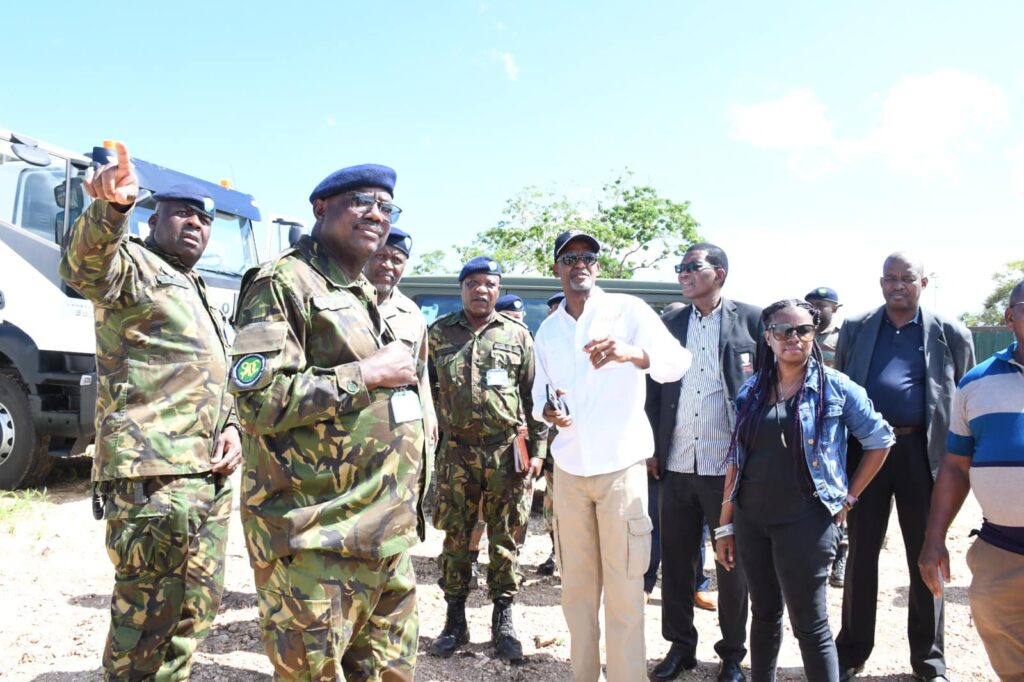ADF STAFF
Mozambique’s armed forces (FADM) are taking a more prominent role in counterterrorism operations, as troops from the Southern African Development Community Mission in Mozambique (SAMIM) have begun to draw down.
The insurgency in the northeastern province of Cabo Delgado continues to terrorize civilians and confound multinational security forces with its resilience.
Rwandan and SAMIM forces have “significantly downgraded” Ansar al-Sunna, a violent extremist group also known as Islamic State Mozambique (ISM). After more than two years of fighting, the terrorist group is down to “160 to 200 battle-hardened fighters,” according to a United Nations monitoring team report published on January 29.
SAMIM, which first deployed to Cabo Delgado on July 18, 2021, has indicated for months that it soon would begin a phased drawdown. A statement by the regional bloc confirmed that the withdrawal is underway and will be completed by July 15.
“The Mission intends to leave a secure and stable environment that ensures the safety of civilians,” SADC said on January 28.
Remnants of the insurgent group are moving south in search of resources and recruits, as Mozambican forces flush them from their strongholds in the Catupa Forest.
“Since February 2023 at least, ISM has put considerable effort into building supportive relationships with communities in the [Macomia district’s coastal] area,” according to conflict observatory website Cabo Ligado, which is published by the Armed Conflict Location & Event Data Project. “This has allowed the establishment of supply chains for basic goods, often by sea, and likely gives access to intelligence on movements by FADM and troops from SAMIM.”
Mozambican President Filipe Nyusi described ISM as “on the run” and appealed to Mozambican young people to resist attempts at recruitment.
“The movements of extremist groups in new points in Cabo Delgado aim to divert the advances of government forces, which are towards the main terrorist bases,” he said in a February 3 speech. “The defense and security forces have as their latest goal to deny the terrorists’ penetration and mobility by sea, including their resupply from the adjacent islands.”
Nyusi said Rwandan and SAMIM forces continue to support FADM troops. Experts say many challenges remain for Mozambican forces to effectively carry out counterterrorism operations without foreign backing.
“ISM’s initial growth and the subsequent resilience of its remaining core have exposed FADM’s structural weaknesses, reflected in its lack of tactical and strategic sophistication, indiscipline amongst troops and outdated equipment,” Cabo Ligado wrote in a January 31 report.
Zitamar News journalist Tom Gould reported on the consequences of SAMIM’s withdrawal, noting that FADM will be thrust into a security vacuum.
“Its performance so far has been far from encouraging,” he wrote. “On 18 January, FADM abandoned the strategic village of Mucojo, effectively handing the insurgents unbridled access to the Macomia coast. Mozambican security forces are known to be suffering from a shortage of food and many soldiers have not been paid in months. If the Mozambican military is struggling to fulfil its current responsibilities, it is hard to imagine it coping with an expanded role when SAMIM departs.”
ISM’s recent attacks underscore the difficulty Mozambique faces in trying to snuff out the remaining militants. Nyusi said the fight against terrorism “may be slow, painful and exhausting, but we have no alternative but to defeat it.”

